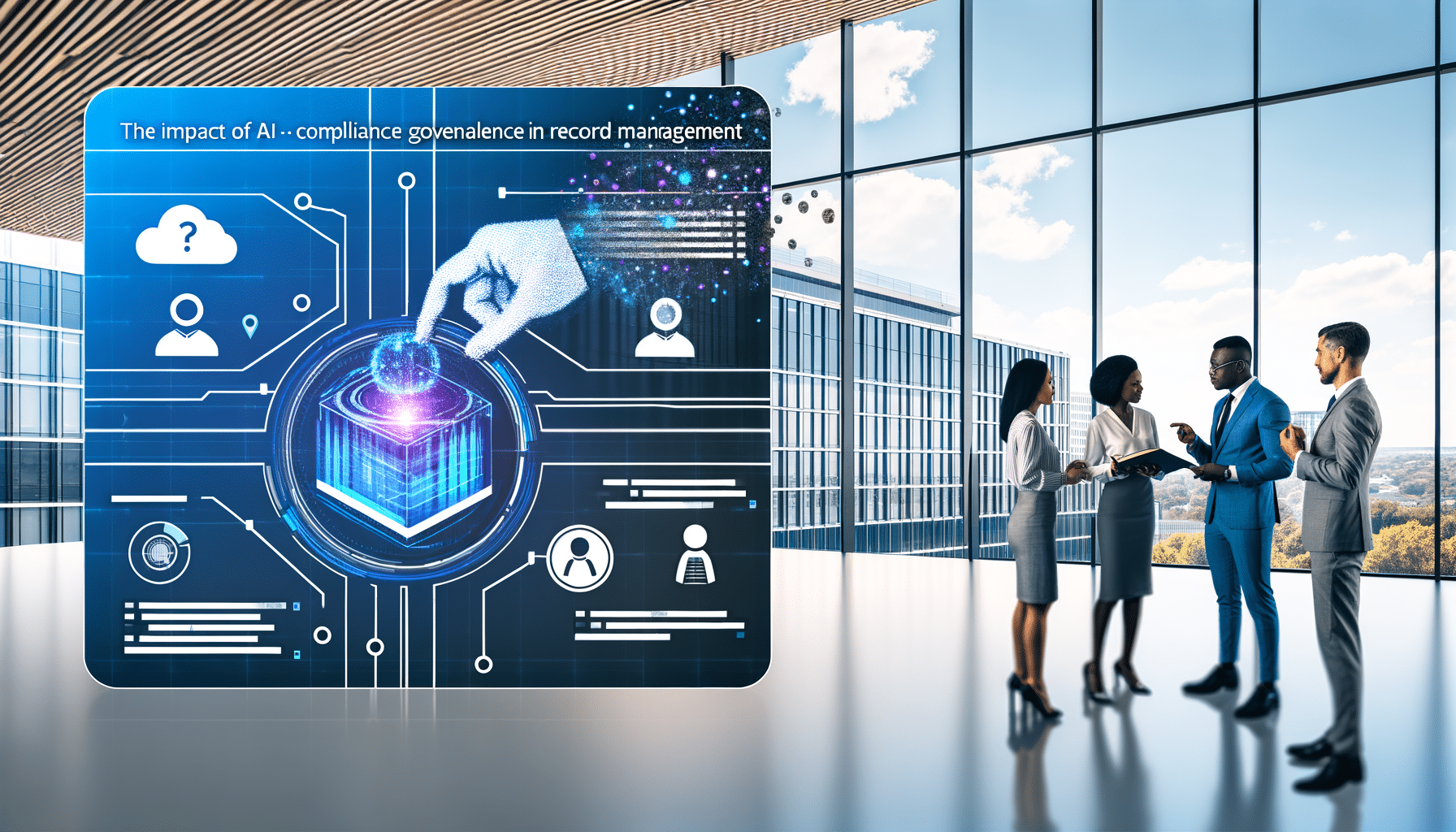- Data Governance
- January 20, 2023
Exploring Blockchain’s Role in E-Governance Record Systems

Revolutionizing E-Governance Through Blockchain
In my journey of building RecordsKeeper.AI, I’ve witnessed firsthand the transformative power of blockchain technology, especially in the landscape of e-governance and public records management. It’s an arena ripe for innovation, offering transparency, security, and efficiency—qualities that are inarguably pivotal for governance today. Let’s delve into how blockchain is reshaping e-governance and what it means for public records.
Understanding the Current Challenges
Public records are at the heart of governance. They encapsulate everything from birth certificates to land titles, yet their management is often plagued by inefficiencies, lack of transparency, and vulnerabilities to tampering or loss. Traditional record systems are burdened with:
These are not just administrative challenges but also affect citizens’ trust in the system. This is where blockchain technology comes into play.
The Blockchain Advantage
Blockchain, with its decentralized, immutable ledger, is tailor-made for managing public records. It addresses the pressing needs of transparency, integrity, and accessibility. Here’s how:
1. Immutability and Transparency
One of blockchain’s most striking features is its immutability. Once a record is entered into the blockchain, it cannot be altered. This permanence ensures that all records remain untampered, enhancing transparency in e-governance systems. Citizens and governmental bodies have the same view of records—instilling trust without any intermediaries.
2. Decentralization and Security
By decentralizing the storage and management of records, blockchain eliminates a single point of failure, reducing the risk of hacks and unauthorized manipulations. Each participant in the blockchain network holds a copy of the records, ensuring security through consensus.
3. Efficient Data Retrieval
Retrieving records becomes seamless and quick. Instead of wading through files or databases, records can be accessed swiftly through blockchain—with smart contracts automating the verification processes. This streamlines procedures like land registration, which traditionally take weeks or months.
Real-World Applications: A Glimpse of What’s Possible
Countries worldwide are beginning to explore blockchain for public records, and the results are promising:
These examples demonstrate blockchain’s potential to revolutionize how governments operate, paving the way for more accountable and efficient public services.
Transforming Government-Citizen Interactions
Blockchain doesn’t just modernize administrative processes; it fundamentally transforms how citizens interact with their governments. By providing transparent and easily accessible records, blockchain bolsters citizens’ rights to information and participation in governance. This digital empowerment fosters a healthier, trust-based relationship between the state and its citizens, aligning with democratic principles.
What the Future Holds
The possibilities for blockchain in public records are vast and exciting. As adoption accelerates, we can anticipate more robust and innovative applications appearing on the horizon. However, for widespread implementation, several factors need addressing:
As we navigate these challenges, the potential benefits cannot be overstated. Blockchain could pave the way for the next generation of governance systems—one where security, transparency, and efficiency are standard, not aspirations.
Final Thoughts
The journey towards integrating blockchain in e-governance is not without its hurdles, but the path offers immense opportunities for innovation and improvement in public record systems. As I continue to advance RecordsKeeper.AI, I am inspired by how blockchain stands to redefine conventional systems, making them more transparent and reliable.
I invite you to stay abreast of these developments and consider how blockchain might benefit your sector. Whether you’re a part of a governmental body or an organization grappling with record management challenges, exploring blockchain’s potential is a leap towards modernity and trustworthiness. Follow me for more insights on this transformative journey and remember—innovation is not just about technology; it’s about openness to new possibilities.
Toshendra Sharma is the visionary founder and CEO of RecordsKeeper.AI, spearheading the fusion of AI and blockchain to redefine enterprise record management. With a groundbreaking approach to solving complex business challenges, Toshendra combines deep expertise in blockchain and artificial intelligence with an acute understanding of enterprise compliance and security needs.
Related Posts

Simplify Data Governance Using RecordsKeeper.AI
Make data governance effortless with AI support.
- November 16, 2024

The Impact of AI on Compliance and Governance in Record Management
Learn how AI improves compliance and governance frameworks within record-keeping practices.
- April 22, 2023
Archives
- January 2025
- December 2024
- November 2024
- October 2024
- September 2024
- August 2024
- July 2024
- June 2024
- May 2024
- April 2024
- March 2024
- February 2024
- January 2024
- December 2023
- November 2023
- October 2023
- September 2023
- August 2023
- July 2023
- June 2023
- May 2023
- April 2023
- March 2023
- February 2023
- January 2023
- December 2022
- November 2022
- October 2022
- September 2022
Want to get more content like this?
Signup to directly get this type of content to your inbox!!
Latest Post
Document Control for Equipment Maintenance
- January 20, 2025
Managing Records for Multiple Clients
- January 19, 2025
Handling Conference Documentation
- January 18, 2025
Setting Up Department Record Reviews
- January 17, 2025





